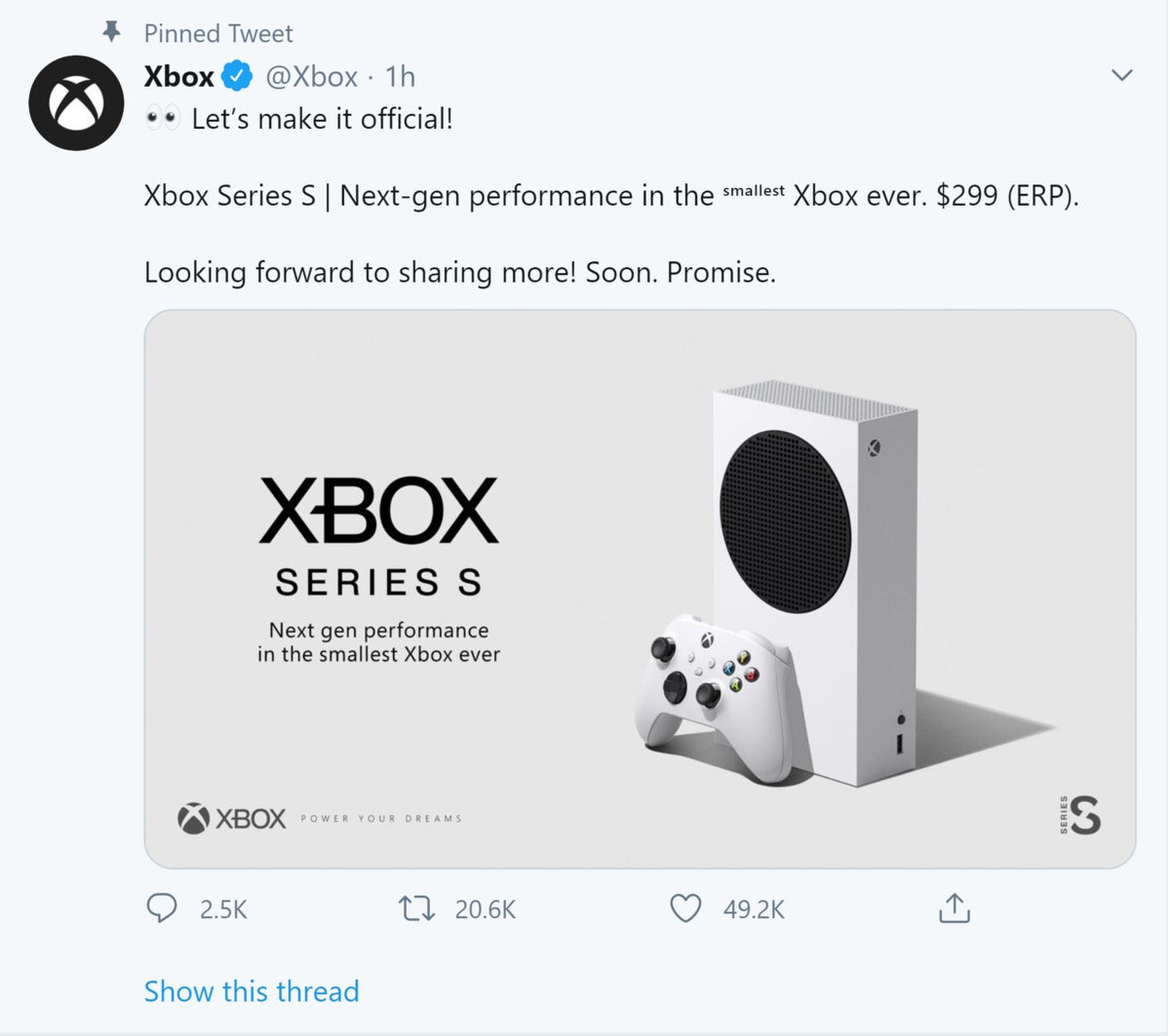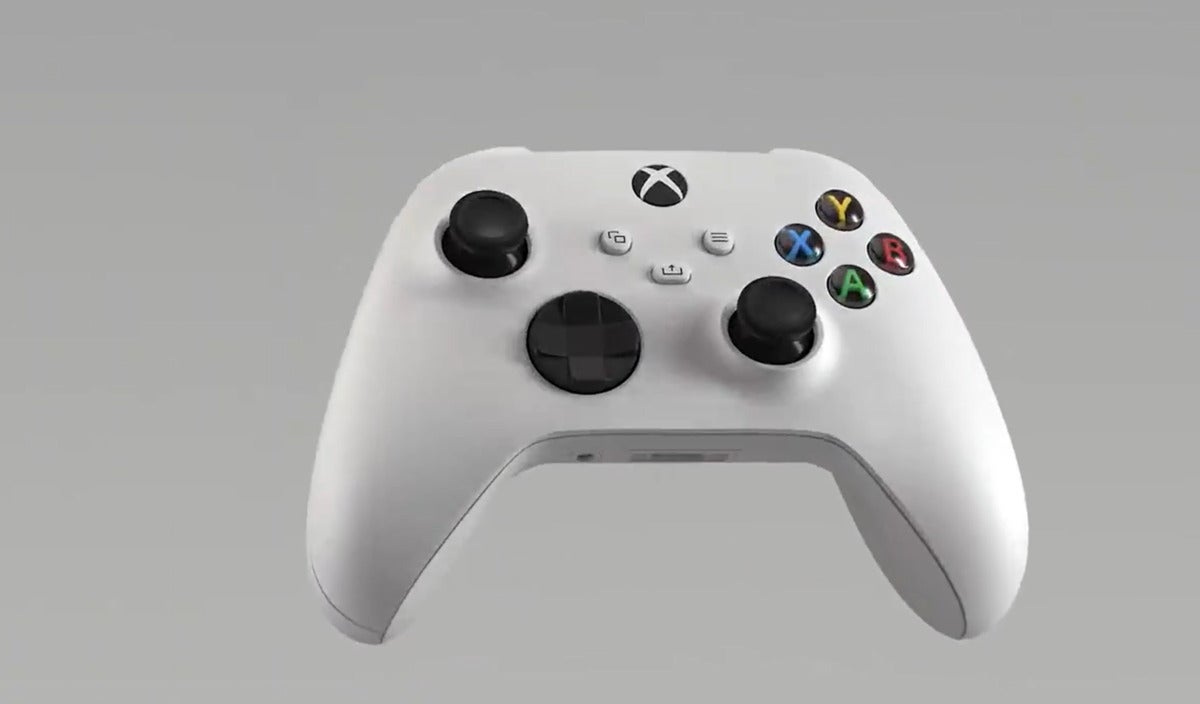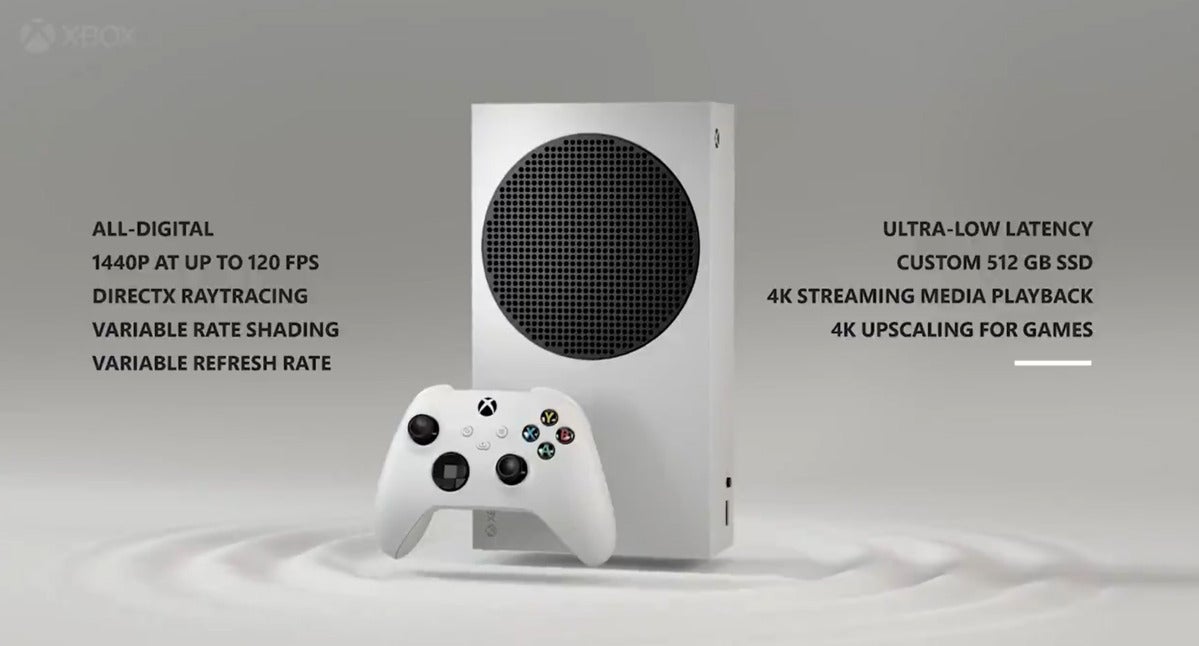Updated
If you were expecting to pay a lot more for the new Microsoft Xbox Series X, think again.
Today’s Best Tech Deals
Picked by TechHive’s Editors
Top Deals On Great Products
Picked by Techconnect’s Editors
If recent reports and leaks prove true, Microsoft’s Xbox Series X and Xbox Series S consoles will launch on Nov. 10 for familiar prices: $499 for the Xbox Series X, and $299 for the Xbox Series S. After the leaks occurred, Microsoft itself confirmed the Xbox Series S’s existence, as well as its $299 price point.
It looks like next-gen Xbox information is making its way out on the web: Windows Central says it’s received the Xbox Series X pricing and launch information; Thurrott’s Brad Sams says he’s confirmed the existence of the Xbox Series S; and the WalkingCat Twitter account has some images of the Xbox Series S comparing the size of the (smaller) Series S console to the next-gen Xbox Series X, part of a new leaked commercial for the Xbox Series S that Microsoft eventually confirmed. And Microsoft? After this reports surfaced, the company just went ahead and… tweeted it out.
 Twitter / Microsoft
Twitter / Microsoft Microsoft’s Xbox Twitter account finally spilled the beans on the Xbox Series S.
Microsoft, of course, has confirmed the existence of the Xbox Series X, with a deep dive into its internals. To date, however, Microsoft hasn’t said anything beyond the fact that the console would launch during the 2020 holiday season, even with the COVID-19 pandemic lurking in the background. However, Microsoft launched the original Xbox One X at $499, and Windows Central says that’s going to be the price of the new Xbox Series X, too. Windows Central reported the Nov. 10 launch date, too.
 Twitter / Microsoft
Twitter / Microsoft Microsoft has yet to confirm the price of the Series X console, the launch date, or the internal components of the Xbox Series S. Microsoft’s own disclosure of the Xbox Series S and its price adds to details revealed by the WalkingCat Twitter account on Sunday night, which posted a GIF file with a white Xbox Series S being compared to the size of the larger Xbox Series X. A still image of that GIF is posted at the bottom of this article.
What appears to be a leaked commercial from the WalkingCat Twitter account also reveals some previously unknown specs: a 512GB SSD, an “all-digital experience” that suggests the lack of an optical drive, and raytracing capabilities.
 Twitter / WalkingCat
Twitter / WalkingCat Here’s a summary of the new Xbox One S features.
Windows Central also says that it has confirmed that the Xbox Series S console doesn’t include an optical disc drive, as the leaked commercial implies. The site said it expects Xbox Series S performance to be about that of the Xbox One X. The image Microsoft shared of the more affordable console don’t immediately show a disc slot, unlike the Xbox Series X’s promotional images.
Offering the Xbox Series X at $499 would, in some circles, be a deep discount to what Microsoft could charge for the console. Microsoft has said that its next-gen Xbox Series X console will offer 12 teraflops of performance, roughly twice that of the Xbox One X. Teraflops measure compute performance rather than actual gaming performance, but there was already a a vast gap between the performance of the Xbox One S (1.4 TFlops) and the Xbox One X (6 TFlops). The latter Xbox One X console has largely been sold out and discontinued, and available through Amazon’s Renewed program for $470.
 Twitter / @_h0x0d_
Twitter / @_h0x0d_Microsoft’s Xbox Series S, the cheaper, less-powerful version of the Xbox Series X, will reportedly include an interesting speaker-like grille on one side, and be slightly smaller than the Xbox Series X. It’s the “smallest Xbox ever,” according to Microsoft.
Not surprisingly, Microsoft will make the Xbox Series X part of its Xbox All Access program, Windows Central reports, a lease that allows a user to pay a small fee (about $31/mo for an Xbox One X) to lease a Microsoft console. The All Access plan also comes with 24 months of Xbox Game Pass Ultimate, Microsoft’s Netflix-like game subscription program. A $299 Xbox Series X paired with Xbox Game Pass already looks poised to provide stunning value, and offering it on a monthly payment plan would only make it more achievable for gamers to obtain.
Sony, of course, hasn’t announced the price of its next-generation PlayStation 5 console. Looks like the ball is in Sony’s court, now…or at least until Microsoft decides to tweet even more information.
This story was updated at 10:51 PM with new information.
Note: When you purchase something after clicking links in our articles, we may earn a small commission. Read our affiliate link policy for more details.
As PCWorld’s senior editor, Mark focuses on Microsoft news and chip technology, among other beats.

